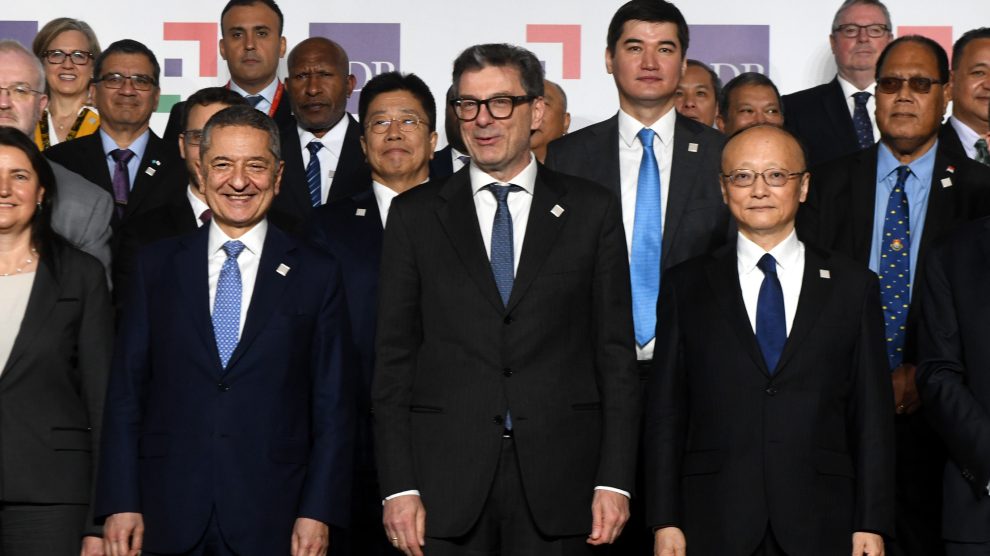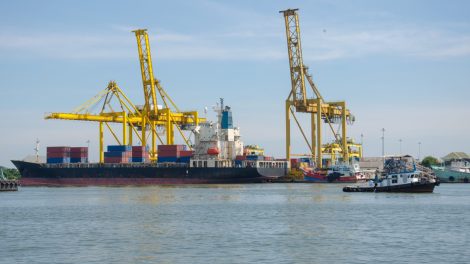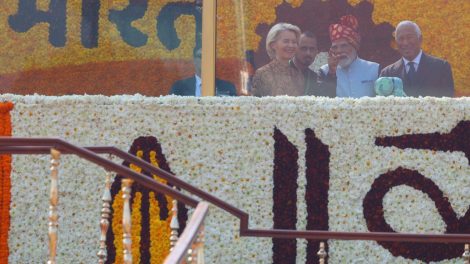Decoding the news. The Asian Development Bank (ADB) is holding its 58th Annual Meeting in Milan—the first time ever hosted in Italy.
- Over 5,000 delegates, from ministers to business leaders, have gathered through May 7 to discuss food security, regional integration, and multilateral coordination.
- While Italy is seeking a more substantial presence in the Indo-Pacific, a region increasingly shaping the global economy, its hosting of the ADB reflects Rome’s ambition to serve as a long-term partner for development and innovation in Asia.
- The event opened with a concert on Sunday at the historic opera house La Scala, attended by Italian Prime Minister Giorgia Meloni, and is backed by the Bank of Italy and Italy’s Ministry of Economy and Finance.
Focus on food systems. ADB announced an additional $26 billion to strengthen food systems across Asia and the Pacific, bringing its total commitment to $40 billion by 2030.
- “This will help countries alleviate hunger, improve diets, and protect the natural environment while creating opportunities for farmers and agribusinesses,” said ADB President Masato Kanda, a Japanese bureaucrat.
Don’t dismantle global integration. Bank of Italy Governor Fabio Panetta, who also chairs ADB’s Board of Governors, warned about fragmentation.
- “Asia-Pacific remains the most dynamic region of the global economy. But trade barriers and geopolitical tensions threaten growth and monetary policy transmission”, he said.
- “Preserving economic integration and strengthening international cooperation is not optional—it’s essential,” he added.
- He closed with a call for boldness: “Let us be inspired by Marco Polo—who wrote, ‘It was my will to discover, and that will be stronger than fear.’”
A new globalisation, new rules. Italian Finance Minister Giancarlo Giorgetti emphasised the need for reform and clarity: “We need ambitious structural reforms and stable, predictable trade conditions.”
- According to the Italian Minister, it may also be time to rethink globalisation as we know it, “while liberalisation has benefited the global economy, its gains have not always been equitably shared,” he said.
- On emerging technologies: “Disruptive tech brings risks and opportunities. It’s time to define new, shared rules—not just free markets, but fair and rules-based ones.”
State of play. ADB’s latest outlook projects 4.9% growth for Asia-Pacific developing economies in 2025, down slightly from 5.0% in 2024.
- Strong domestic demand in India, Southeast Asia, and the Pacific offsets China’s deceleration.
- “Solid fundamentals underpin the region’s developing economies,” said ADB Chief Economist Albert Park.
Between the lines. With the US, China, and Japan as shareholders, ADB is one of the last functioning platforms for multilateral cooperation, offering space for pragmatic compromise in a fractured global landscape. A space for compromise—and one Italy wants to strengthen.
What we’re watching. Milan is not just a host city—it’s a springboard for Italy to position itself as a bridge between Europe and Asia in a region increasingly defining the world’s economic future.
- “We need strong, coordinated political action—including efforts to create a cleaner, more stable and predictable trade environment,” Giorgetti underlined.





